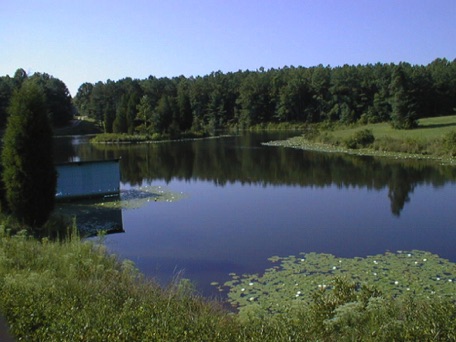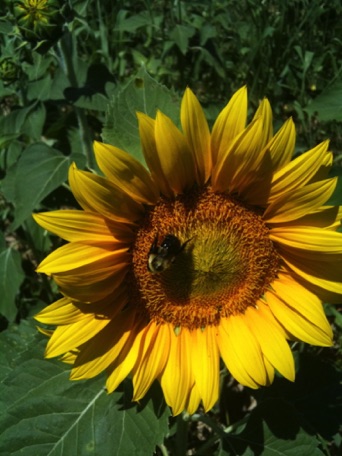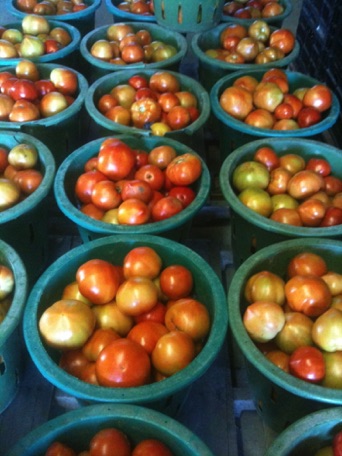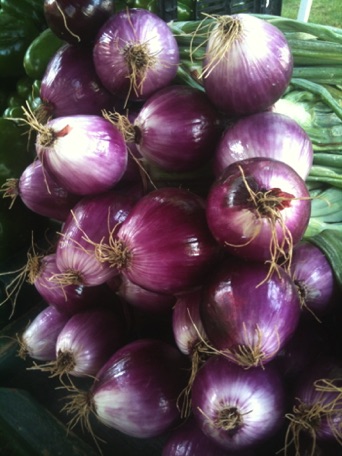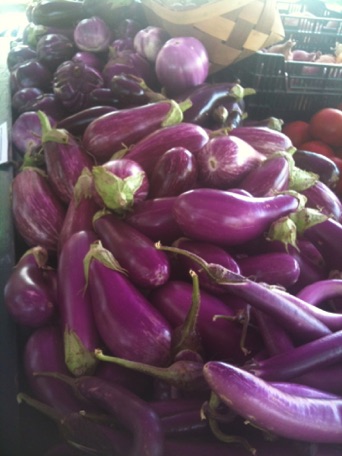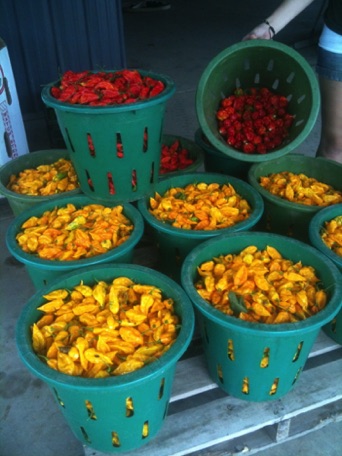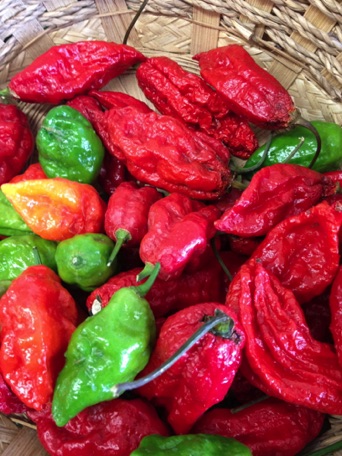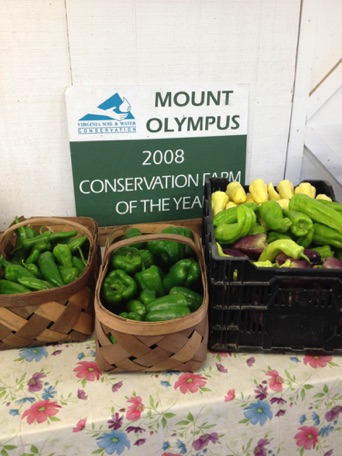Pharm Photos
Market Phone #
804-448-0395
Our Story
Long, long ago in a galaxy far, far away...Oops, wrong story. This is the story of Ken and Mary West and how Mt Olympus Berry Farm came to be. This is the condensed version: Boy meets girl in 1985 and they date for a few years. She works in a bookstore in Shockoe Slip and he works for a lawn company. The bookstore is sold to Boo & Jim Smythe. Boo is from Richmond originally and they are moving back to the area to the farm her father bought in the 50's as a weekend getaway. It was originally called Magnolia Inn but he renamed it Mt Olympus. That's another tale.
Mary came as a fixture with the bookstore and Ken came with Mary. Eventually he started doing odd jobs for the farm and other independent contracting projects. Fast forward to 1988 and they get married and go into partnership with the Smythe's and their son Scott. Voila, a farm is born.
We started out with 5 acres of blueberries. After planting a small garden plot of vegetables, Ken thought, "Hmmm, we could make money selling vegetables". HA! Thirty years later we are still trying to make money selling vegetables. In the early 90's we expanded into strawberries and blackberries and each year we added more acres of vegetables. We now farm 50 plus acres. In 2016 the Smythe's decide to follow different paths and turn over the farm business to the Wests.
In 1995 Ken and Mary started a personal project. Ken designed and built a timber frame home with trees off of the farm. It was designed to be energy efficient with lots of south facing glass and radiant floor heat. In the fall of 2014 we added an outdoor wood furnace to fuel the boiler to the house and shop.
In the late 90's/early 2000 along came the newest additions, Emily and Ben. Emily is our next Gen farmer. She is taking on more responsibility and learning from the expert, Dad. She is our team lead for two of the Fairfax farmers markets, keeps our packing house and market trucks organized, oversees the greenhouses and seed starts. Ben has chosen a different career path in IT. He's our go-to guy for tech issues.
Mt Olympus Farm is committed to being good stewards by utilizing the best practices for our land including: conventional, organic, no-till and sustainable agricultural production. It is our job to produce healthy, nutritious products. We are also dedicated to making the land better than we found it and be good neighbors and community helpers.
The philosophy of organic food production maintains certain principles: biodiversity, ecological balance, sustainability, natural fertilization, natural pest management & soil integrity. Certified organic crops are produced on land that has been free of known and perceived toxic chemical pesticides and fertilizers for at least 3 years prior to certification. Also synthetic fertilizers and pesticides are not used in production. Natural based pesticides may be used. Mt Olympus uses green manures, low-impact pesticides and limited synthetic fungicides.
After the USDA standards were implemented all farmers describing their product as "organic" had to go through a national certification process involving a substantial fee and extensive record keeping.
This process was too costly and time consuming for many smaller "organic" and sustainable producers. Most stopped using the word organic instead of certifying their farm. This is why Mt Olympus Farm is not certified organic at this time.
Farming Practices
Here are some of the practices we use:
Drip Irrigation (Fertigation)- reduces water and fertilizer use and prevents “splash” which helps control diseases.
Crop Rotation- breaks up pest cycles and helps in nutrient depletion.
No-till production- preserves moisture, prevents erosion by not disturbing the soil and promotes soil biological life.
Planting Cover Crops- helps prevent soil erosion, suppresses weeds and enhances soil quality by increasing organic matter. Puts nutrients needed back into the land naturally.
IPM/Integrated Pest Management- using beneficial insects to control harmful ones.
Plastic Mulch- suppresses weeds and reduces use of chemicals.
Raised beds- provides better water drainage, which helps to control diseases.
Using organic or low toxicity chemicals- only when needed and available.
Utilizing Nutrient Management Plans- using soil testing to manage fertility.
